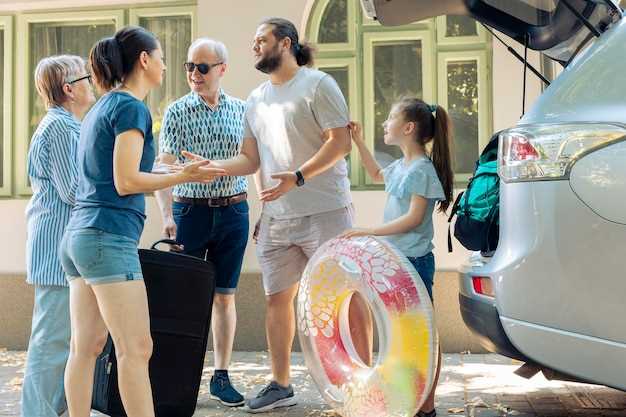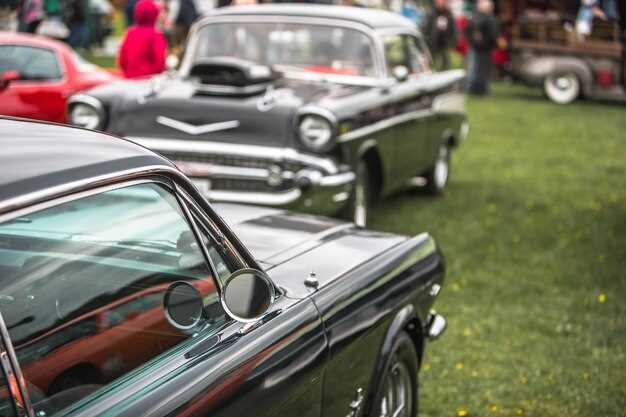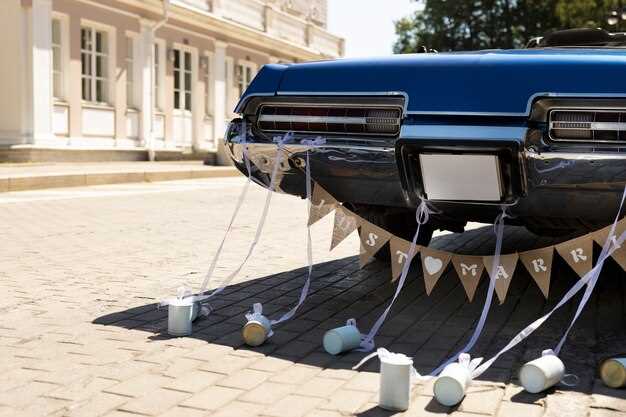
In recent years, charity events involving classic cars have gained immense popularity among automotive enthusiasts and philanthropists alike. These gatherings serve as a unique platform where car lovers can unite under the banner of giving back to the community. By showcasing stunning vehicles from different eras, these events not only celebrate automotive history but also raise vital funds for various charitable causes.
As members of the classic car club gather, they create a sense of camaraderie that transcends the typical fundraiser atmosphere. Participants often share their passion for vintage automobiles while supporting local charities that address pressing issues such as health care, education, and environmental conservation. The combination of nostalgia and altruism makes these gatherings particularly special, attracting diverse audiences of all ages.
Moreover, charity events featuring classic cars provide an opportunity for sponsors and local businesses to engage with the community. By collaborating with clubs and organizations, sponsors can showcase their commitment to social responsibility while reaching potential customers who value philanthropy. This symbiotic relationship benefits everyone involved and highlights how classic car culture can be harnessed for meaningful social impact.
How to Organize a Classic Car Charity Event Successfully
Organizing a classic car charity event requires careful planning and attention to detail. Start by setting a clear goal for your event, including the amount of money you aim to raise and the specific charity or cause you want to support. This will help guide your decisions throughout the planning process.
Next, form a committee of passionate volunteers or members from local car clubs who are enthusiastic about classic cars and the cause. These individuals can help with various tasks, from marketing to logistics, ensuring a successful collaboration.
Choose a suitable venue that can accommodate classic cars and guests comfortably. Parks, racetracks, or large parking lots are often ideal locations. Ensure the venue has adequate facilities, including restrooms, parking, and accessibility for everyone.
Develop an engaging program for the event. Include activities such as car exhibitions, timed races, live music, and awards for various car categories. Encourage participants from different clubs to showcase their vehicles, and consider offering trophies or prizes to attract more entrants and attendees.
Marketing your event is crucial for its success. Utilize social media platforms, local newspapers, and flyers to reach a broad audience. Partner with local businesses for sponsorship opportunities to help cover costs while promoting their brand in return.
On the day of the event, ensure that all logistics are in place, including registration for participants, safety measures, and volunteer coordination. Have clear signage to guide guests and provide information about the charity, fundraising goals, and how attendees can contribute.
After the event, evaluate its success by reviewing attendance numbers, funds raised, and participant feedback. Share the results with everyone involved to show appreciation and highlight the impact of their contributions on the charity cause.
Tips for Maximizing Participation in Classic Car Fundraisers

To enhance attendance at classic car charity events, it is crucial to build a strong relationship with local car clubs. Engaging these organizations can significantly boost participation, as club members often seek opportunities to showcase their vehicles while supporting a good cause. Collaborate with clubs to promote the event through their networks, utilizing newsletters and social media platforms to reach a wider audience.
Creating a compelling event schedule is vital. Consider hosting various activities, such as car shows, blind tastings, or silent auctions, that cater to diverse interests. This variety not only attracts classic car enthusiasts but also appeals to families and individuals who may not otherwise attend. Incorporating entertainment, such as live music or food vendors, can further entice potential participants to join the festivities.
Effective marketing strategies play an essential role in maximizing attendance. Utilize social media to create buzz around the event, sharing captivating stories about featured classic cars and highlighting the charity’s mission. Engaging visuals and testimonials can enhance the promotional efforts, encouraging more people to participate. Additionally, don’t hesitate to leverage local media and community bulletin boards for broader exposure.
Offering incentives can also drive participation. Consider providing early-bird registration discounts or raffle prizes for attendees. Such incentives can create excitement and encourage individuals to secure their spots earlier. Reaching out to local businesses for sponsorships can not only enhance event offerings but also expand promotional channels through their customer base.
Lastly, fostering a sense of community is paramount. Encourage participants to share their personal experiences related to classic cars and the charitable cause. This personal connection can enhance engagement and inspire a sense of camaraderie among attendees, leading to increased participation in future events. By implementing these strategies, classic car fundraisers can maximize their impact and successfully support their chosen charities.
Strategies for Partnering with Local Businesses for Charity Events

Partnering with local businesses can significantly enhance the success of charity events featuring classic cars. The following strategies can help clubs effectively engage local enterprises during the planning process.
Firstly, identify potential business partners that align with the mission of your charity event. Look for organizations that share similar values, such as those promoting community welfare or environmental sustainability. This ensures a harmonious collaboration and can attract more participants to your events.
Secondly, create value propositions for businesses. Explain how their participation will benefit them, whether through increased visibility, brand recognition, or engagement with potential customers. Offer incentives such as promotional booths at the event or social media mentions to make the partnership appealing.
Next, consider hosting pre-event meetings to discuss the goals and logistics. Invite local business representatives to share their insights, fostering a sense of ownership in the planning process. This collaboration can lead to innovative ideas that enhance the event’s appeal and effectiveness.
Additionally, leverage joint marketing initiatives to promote the event. Collaborate on advertising through social media, local newspapers, and community boards to maximize reach. This not only benefits the charity but also provides businesses with increased exposure to new audiences.
Finally, express gratitude and recognition to partners post-event. Acknowledge their contributions publicly through thank-you notes, social media shout-outs, or certificates. Building long-term relationships with local businesses can lead to future support for upcoming events, creating a sustainable network for charity efforts.


